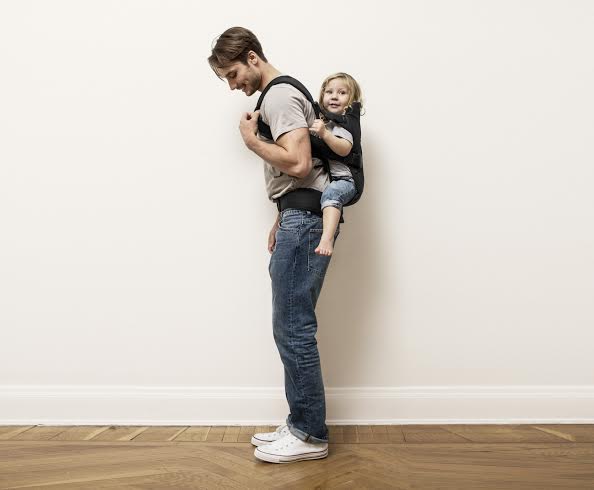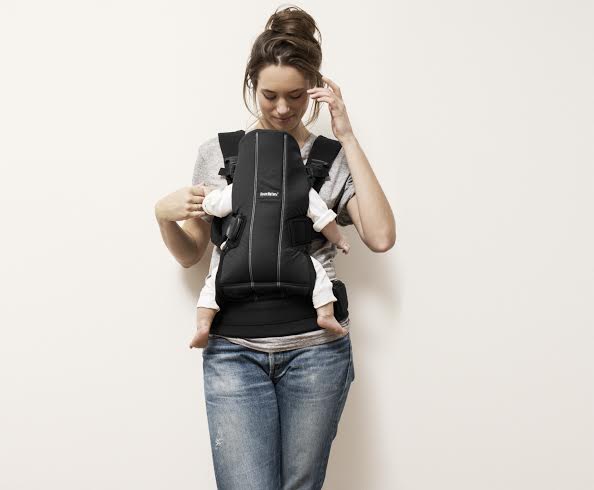 Tell us about your own parenting experience.
Tell us about your own parenting experience.
As a couple with conflicting parenting styles, we were torn between the gentler ‘laissez-faire’ approach and the more disciplinarian ‘tiger parent’ philosophy. What we really wanted was a way of parenting that could fit with our two different personalities, and allow us to parent in harmony, and raise our children to become happy and fulfilled adults.
So casting the parenting fads to one side, we turned to the latest research in child psychology and neuroscience and devoured hundreds of the world’s leading parenting books to find practical, tried and tested evidence. And we were delighted to discover that there really are clear, straightforward methods for achieving what we call a ‘balanced’ approach to parenting.
How is your book different from other parenting books?
Our book is different in that it gives the perspective of two different parenting styles, which removes the guilt associated with having to fit into an ‘idealised parenting mould’. It also equips parents with specific step-by-step tools that are based on the latest scientific and psychological research in childhood development. These tools are designed to support you through the immediate challenges of everyday parenting, whilst also meeting your long-term goal to raise children to become happy, self-reliant and responsible adults.

What are the biggest parenting challenges?
It’s difficult to answer this as it largely depends on your child’s temperament/personality and our own personality, as well as our individual style of parenting. We all encounter challenges so the key thing is to learn how to prevent such issues from happening in the first place, which is one of the key objectives of our book. Learning how to anticipate challenges before they happen allows us time to think, so that we can respond rather than react to our children’s misbehaviour. So we’d say that one of the biggest challenges that parents face is learning to be more strategic in their approach to parenting.
Is there ever a right way to raise children?
We are under no illusions about the reality of family life and have no wish to make it ‘perfect’. The fact is that there is no magic wand to make a family life perfect! However, with a bit more awareness of our children’s needs, combined with some simple practical trouble-shooting tools, we can go a long way to making a real difference to our children’s, our family’s and our own lives.
What are the dangers of over-praising our children?
Research suggests that overpraising our children and particularly using evaluative praise with statements such as “You’re smart” or “You’re good” can create a fear of failure, because children become afraid to do anything that could expose their ‘flaws’ and call into question their ‘talent’. This type of praise results in children becoming less likely to try new things or taking risks for fear of not getting it ‘right’ and so they end up missing out on essential opportunities to develop their confidence and sense of self.
How do you stop other relatives becoming too involved?
We think that other relatives will always get involved and we need to accept this as they think that they are doing this to help us. However, if we are more confident in our parenting and we demonstrate that we can manage our kids without overreacting, etc. then other relatives tend to find it impressive, then start making compliments and ultimately become much less involved.
Top parenting tips.
1. Focus on planning and prevention – instead of always being reactive.
2. Give empathy as often as possible – and do not discount feelings.
3. Model any behaviour you want to instil in your children – starting with respect and joy.
4. Use encouragement and descriptive praise – instead of general or evaluative praise.
5. Focus on what you can control – and don’t undermine your authority with empty threats.
6. Allow your children to have some control over their lives – offer them limited choices and ask them questions.
7. Allow mistakes to happen – they are opportunities for learning.
8. Coach your children to own and solve their problems – and they will become self-responsible.
9. If you have to deliver consequences, do it with respect and empathy – and delay them when needed.
10. When you say or do something you regret, ‘Rewind and Replay’ and ‘Repair’ – to keep a strong connection with you children.
What is the biggest mistake people make when raising children?
This is another challenging question as it’s difficult to identify one key mistake! However, one that is really common and can really affect children as they grow up is for their parents to frequently discount their feelings. This is something that parents do, often without even realising it. We tend to either reassure our children or try to ‘toughen them up’ – whichever approach we use, the message they hear is that they’re not supposed to feel the way they are feeling.
They grow unable to trust their feelings and cannot manage their emotions well, and this is an essential life skill. It’s far better to use empathy as a way of establishing and nurturing a bond with your child than try to ‘make light’ of their feelings, as this simply undermines their innate need to be listened to and have their feelings acknowledged.
Can parenting be made easier?
Our book ‘Kids don’t Come With a Manual – The Essential Guide to a Happy Family Life’ is designed to help empower parents to deal with most situations effectively. So that misbehaviour and the challenges that your children throw your way become opportunities for learning and growing rather than being stressors or negative experiences. Our main goal is to empower parents to deal with everyday parenting challenges without confrontation or anger, and raise their children to become the happy and confident individuals that they deserve to be.
Kids Don’t Come with a Manual by Carole and Nadim Saad, Best of Parenting, £12.99, www.bestofparenting.co.uk/books
Kids Don’t Come With a Manual – The Essential Guide to a Happy Family Life is available here.








